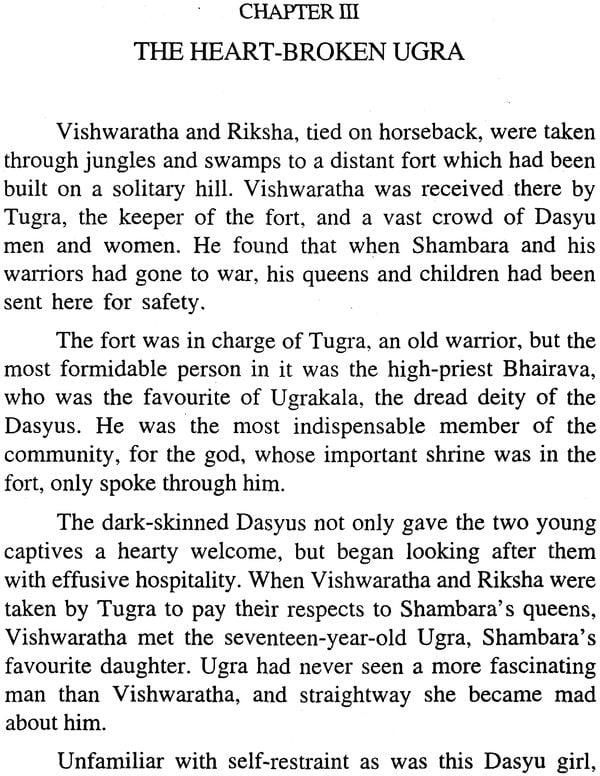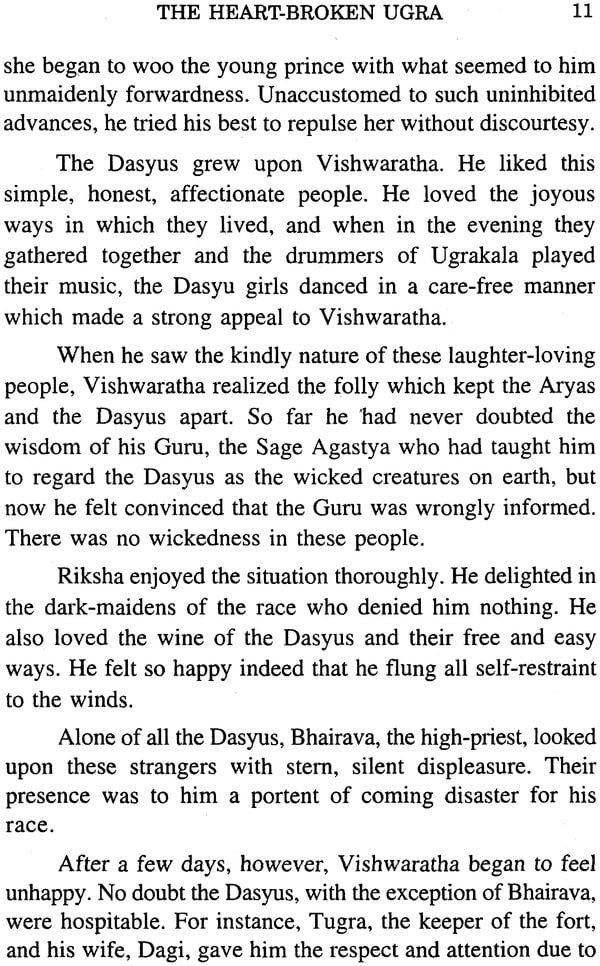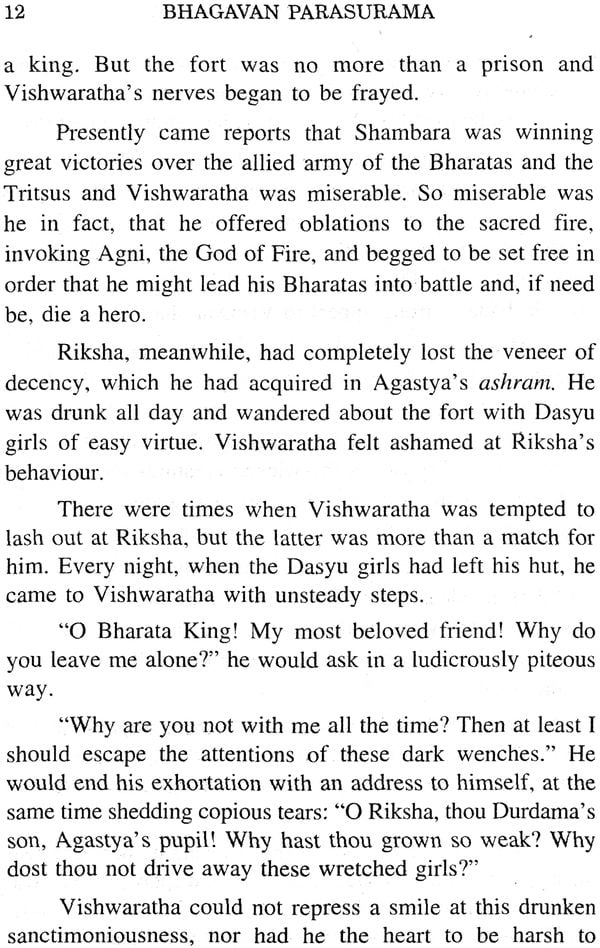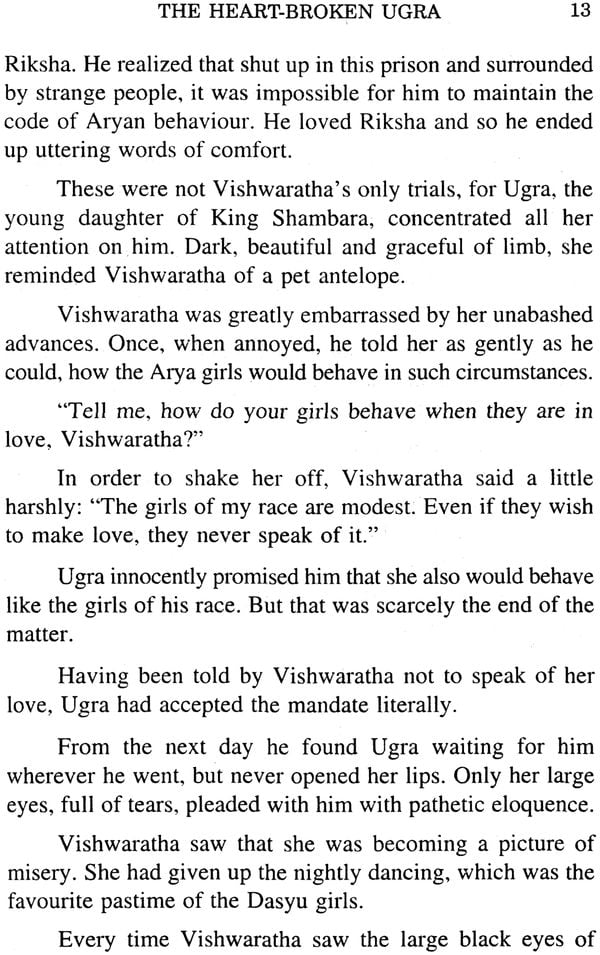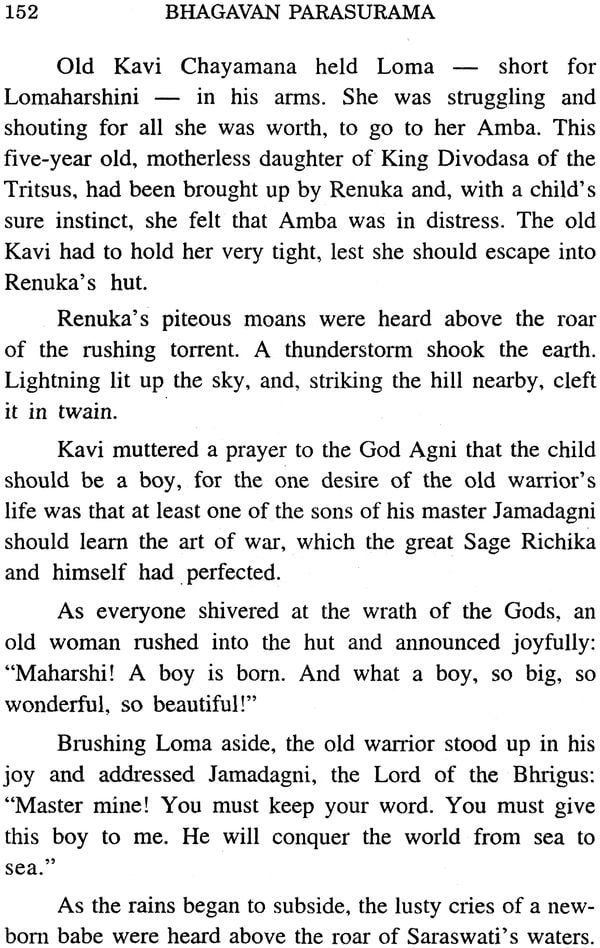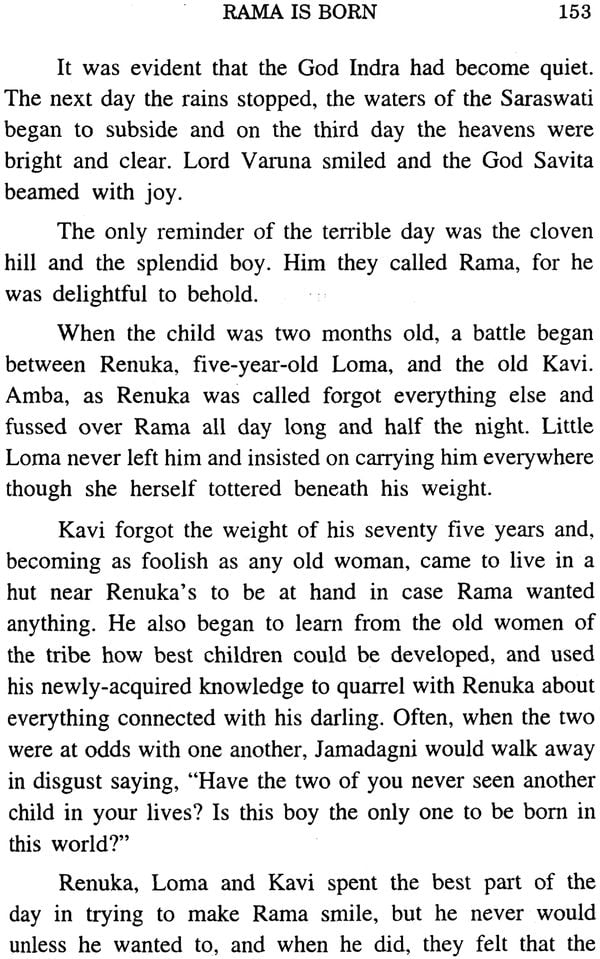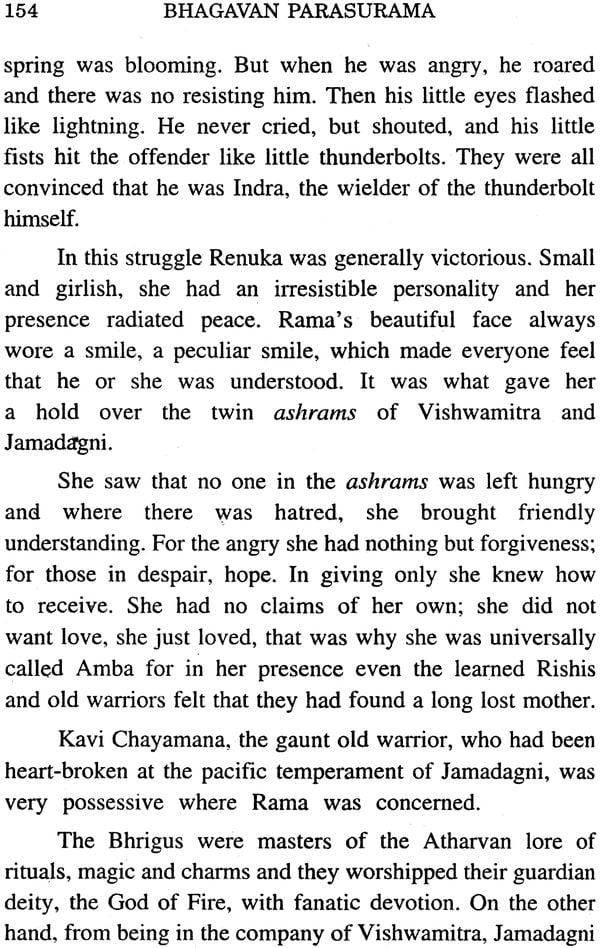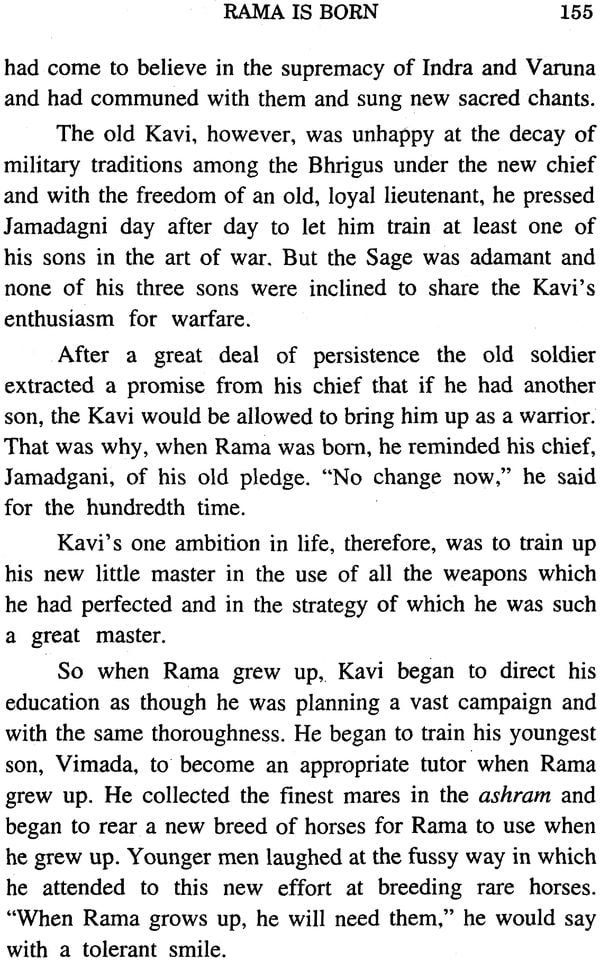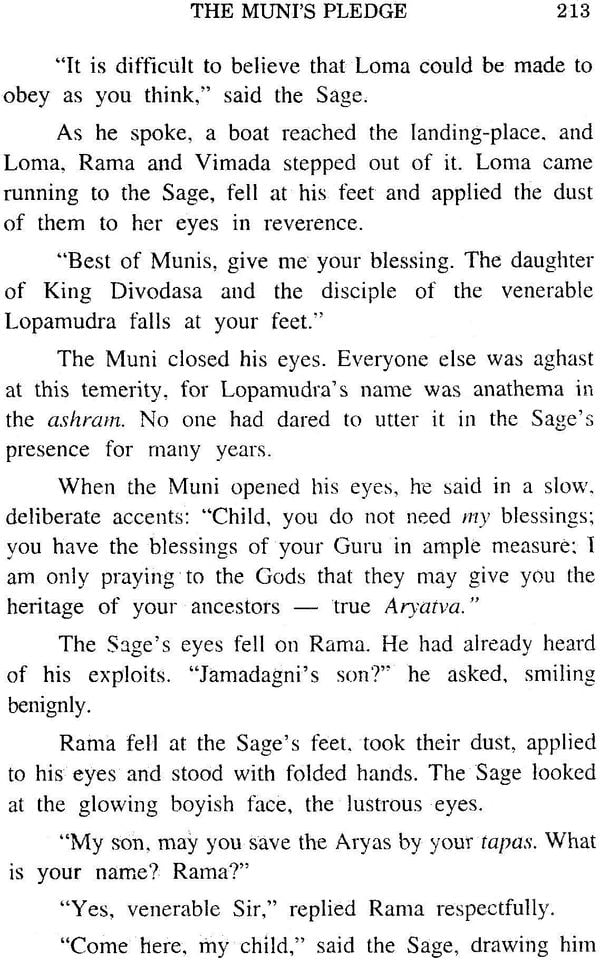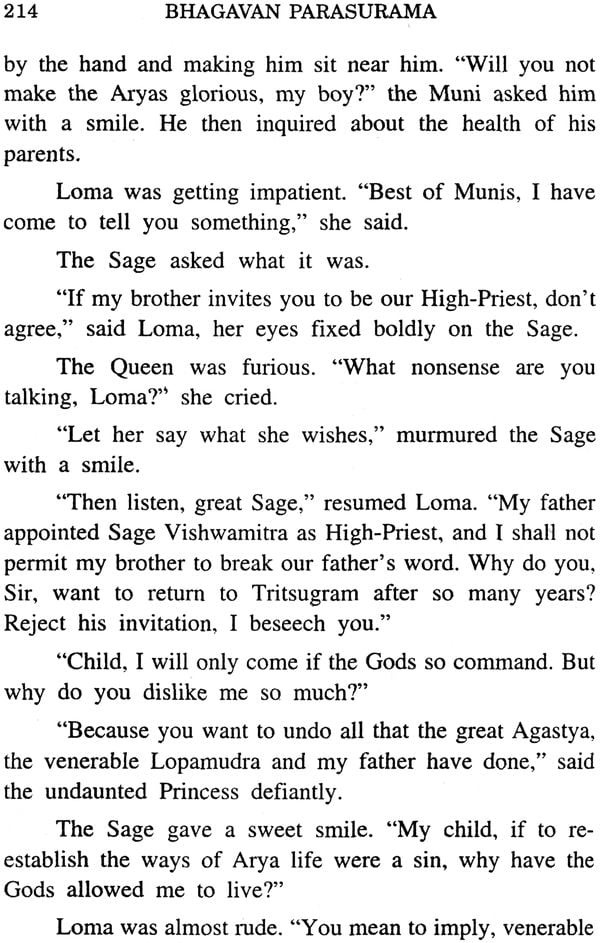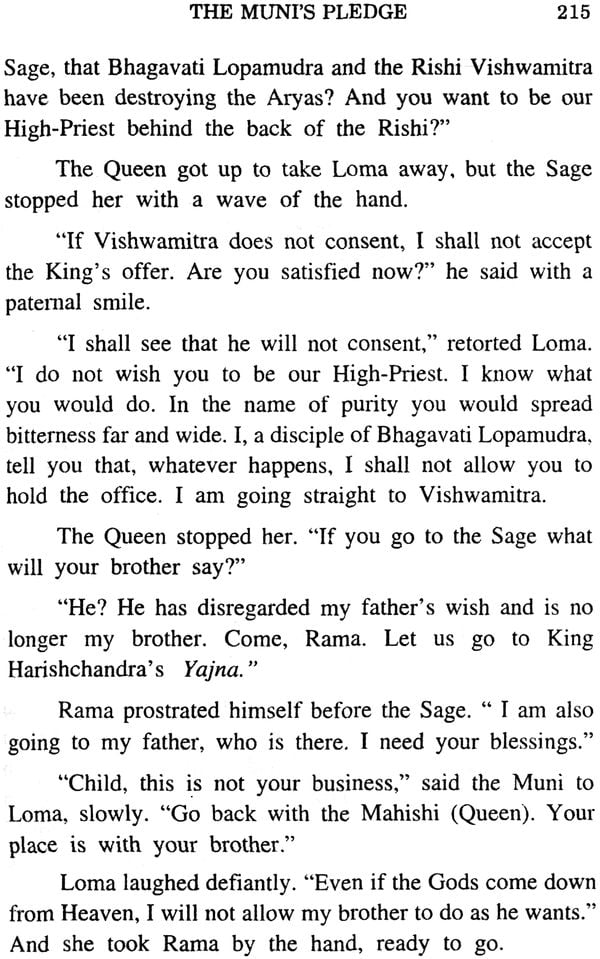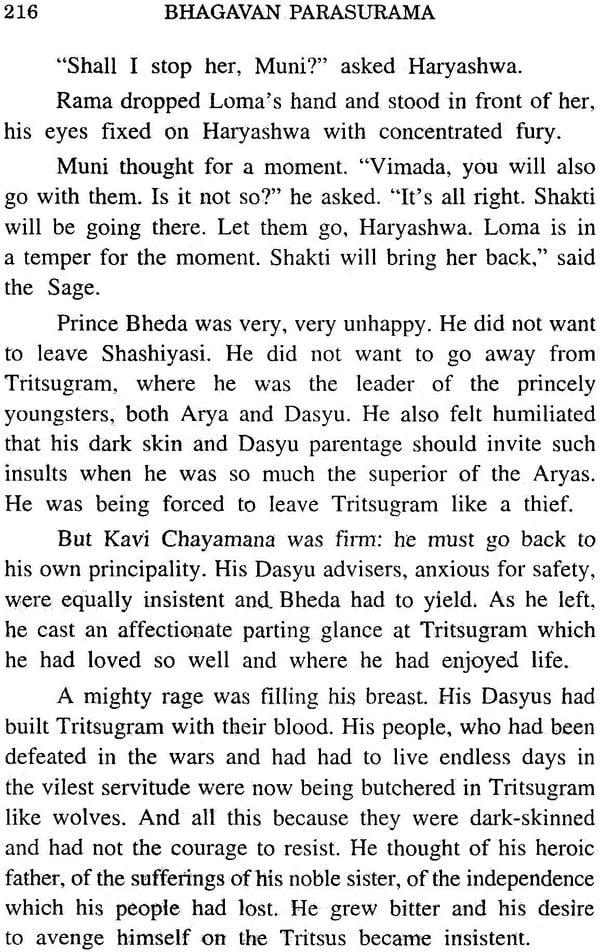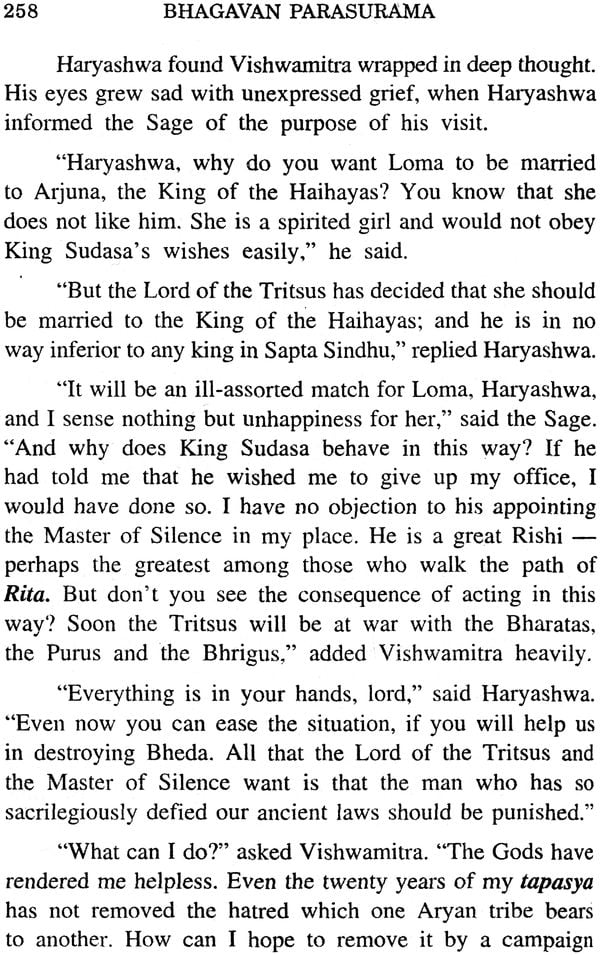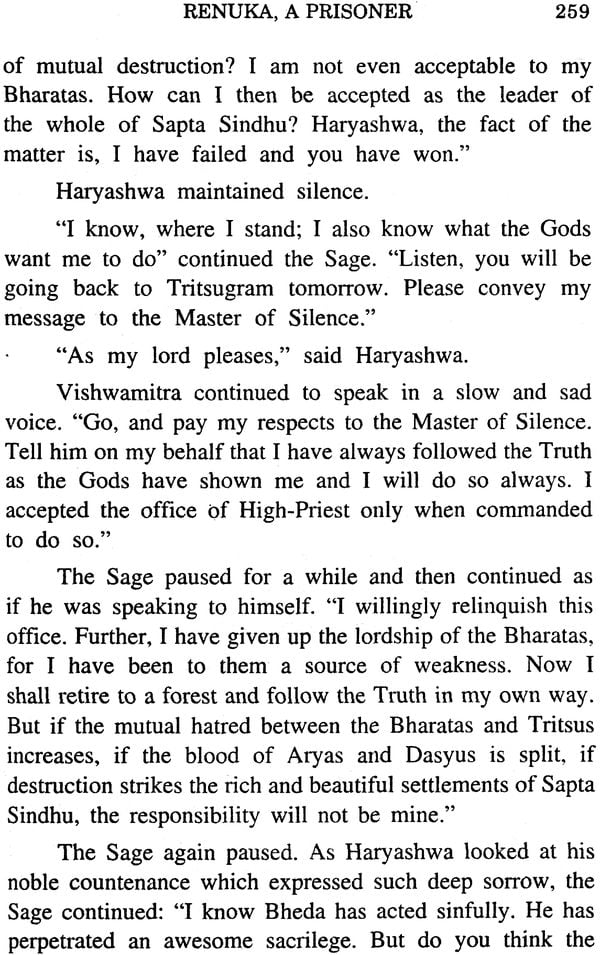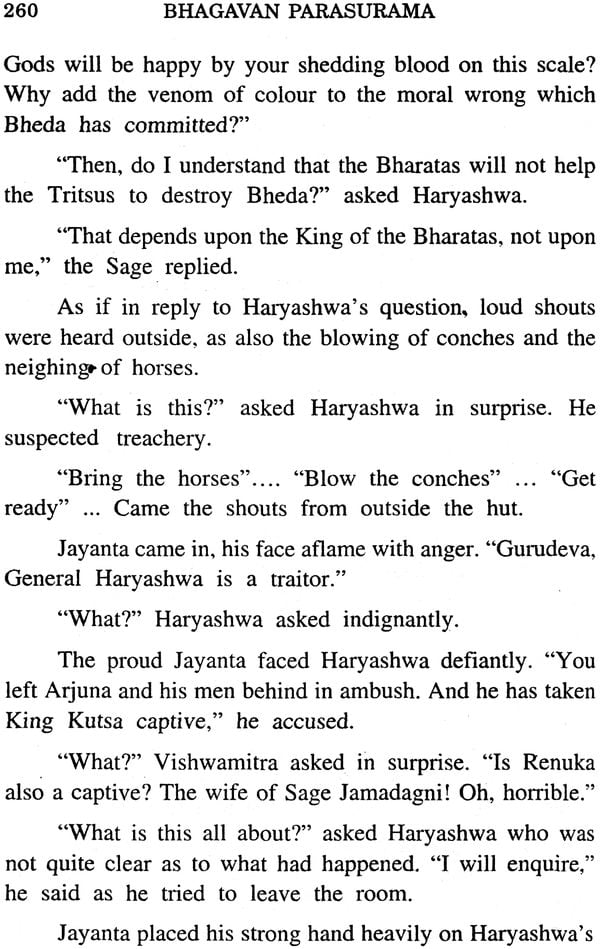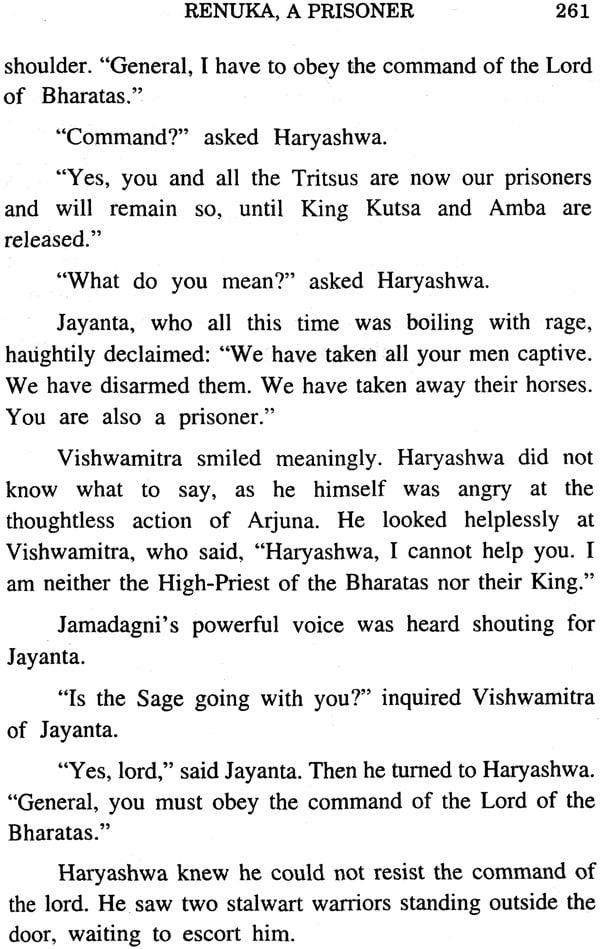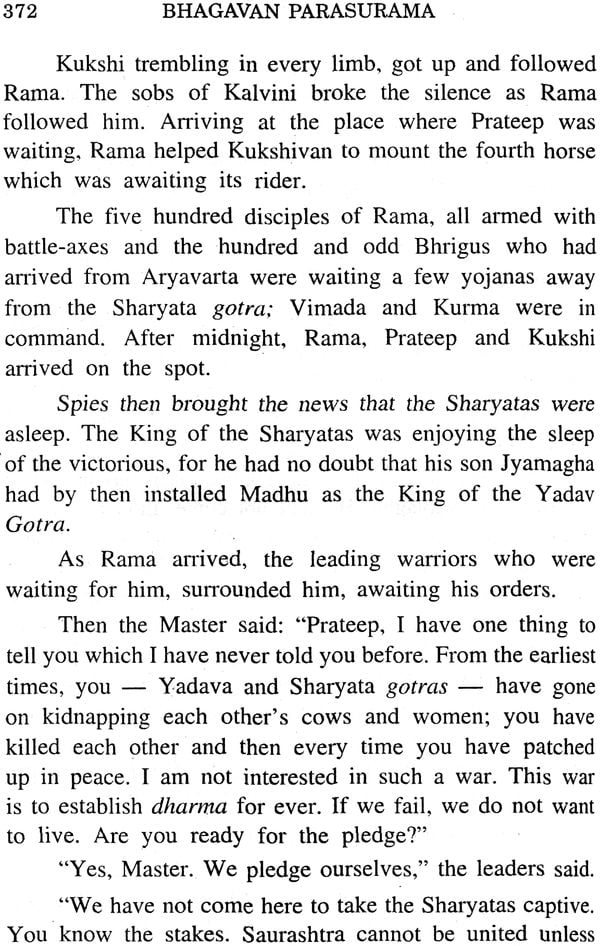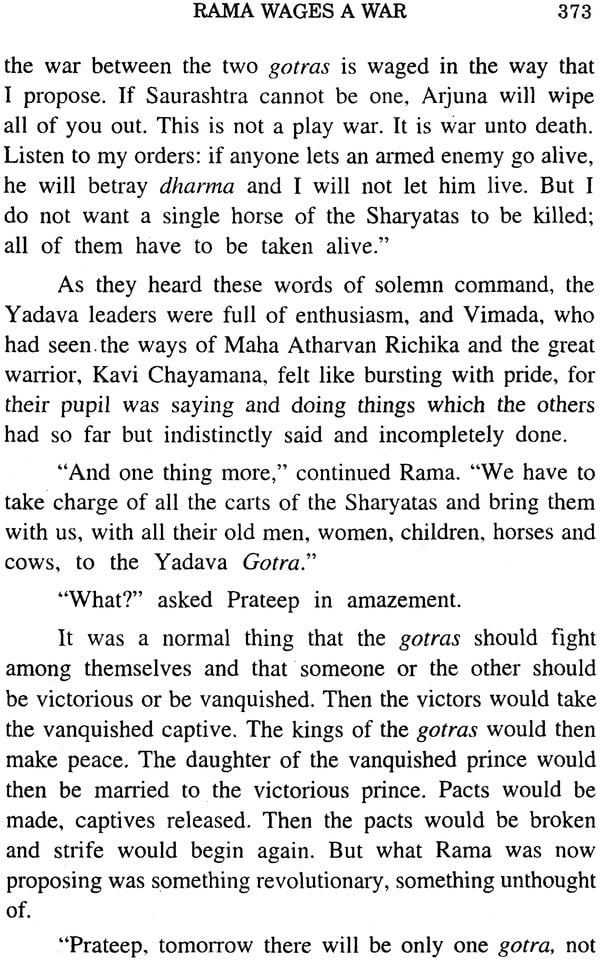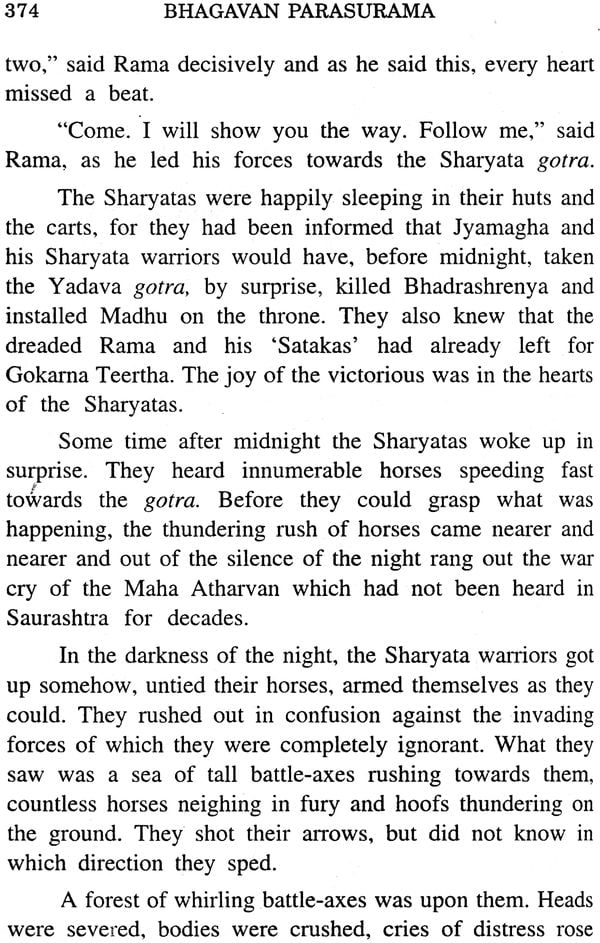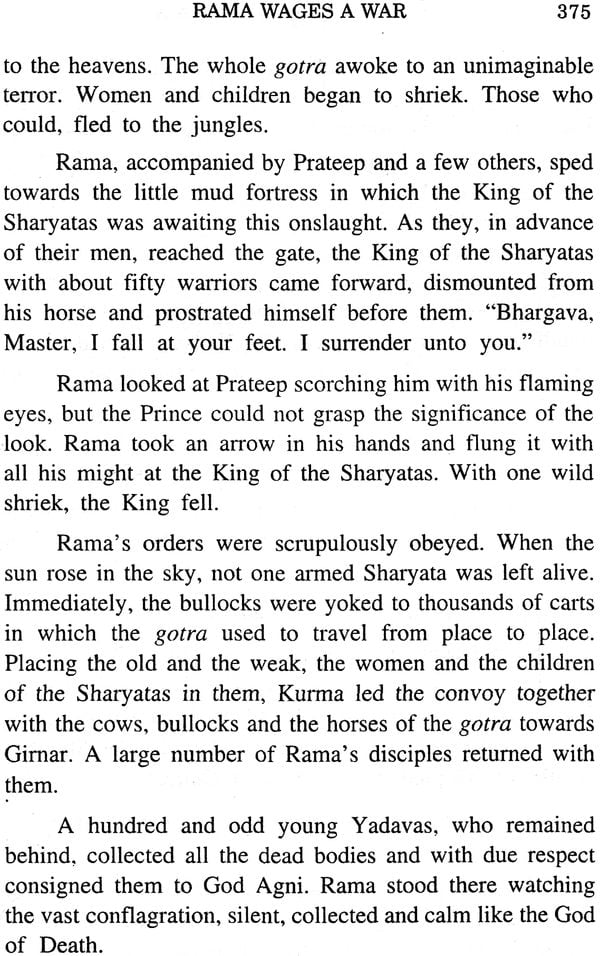
Bhagavan Parasurama
Book Specification
| Item Code: | IDI978 |
| Author: | K. M. Munshi |
| Publisher: | Bharatiya Vidya Bhavan |
| Language: | English |
| Edition: | 2014 |
| ISBN: | 9788172765132 |
| Pages: | 409 |
| Cover: | Paperback |
| Other Details | 7.2" X 4.8" |
| Weight | 290 gm |
Book Description
KANAIYALAL MANEKLAL MUNSHI's versatility and achievements are in a way unique. He is an eminent lawyer, one of the framers of India's Constitution and a seasoned statesman. Coming under the inspiring influence of Sri Aurobindo during his student days, Munshi has been an ardent fighter for India's freedom working at different stages in close association with Jinnah, Tilak, Besant, Mahatma Gandhi, Sardar Patel and Pandit Nehru. His achievements as Home Minster of Bombay in 1937, as India's Agent-General in Hyderabad before the Police Action, as India's Food Minister and as Governor of Uttar Pradesh have been characterized by rare courage and decisive energy.
Acknowledged as the foremost writer in modern Gujarati literature, he has to his credit a vast and varied literature including novels, dramas, memories and history in Gujarati, as also several historical and other works in English, notably "Gujarat and Its Literature" "Imperial Gurjaras", "Creative Art of Life", "To Badrinath", "The End of an Era" and "Krishnavatara".
The Bharatiya Vidya Bhavan - that Institute of Indian Culture in Bombay - needed a Book University, a series of books which, if read, would serve the purpose of providing higher education. Particular emphasis, however, was to be put on such literature as revealed the deeper impulsions of India. As a first step, it was decided to bring out in English 100 books, 50 of which were to be taken in hand almost at once. Each book was to contain from 200 to 250 pages and was to be priced at Rs. 2/-
It is our intention to publish the books we select, not only in English, but also in the following Indian languages: Hindi, Bengali, Gujarati, Marathi, Tamil, Telugu, Kannada and Malayalam.
This scheme, involving the publication of 900 volumes, requires ample funds and an all-India organisation. The Bhavan is exerting its utmost to supply them.
The objectives for which the Bhavan stands are the reintegration of the Indian culture in the light of modern knowledge and to suit our present-day needs and the resuscitation of its fundamental values in their pristine vigour.
Let me make our goal more explicit:
We seek the dignity of man, which necessarily implies the creation of social conditions which would allow him freedom to evolve along the lines of his own temperament and capacities; we seek the harmony of individual efforts and social relations, not in any makeshift way, but within the frame-work of the Moral Order; we seek the creative art of life, by the alchemy of which human limitations are progressively transmuted, so that man may become the instrument of God, and is able to see Him in all and all in Him.
The world, we feel, is too much with us. Nothing would uplift or inspire us so much as the beauty and aspiration which such books can teach.
In this series, therefore, the literature of India, ancient and modern, will be published in a form easily accessible to all. Books in other literatures of the world, if they illustrate the principles we stand for, will also be included.
This common pool of literature, it is hoped, will enable the reader, eastern or western, to understand and appreciated currents of world thought, as also the movements of the mind in India, which, though they flow through different linguistic channels, have a common urge and aspiration.
Fittingly, the Book University's first venture is the Mahabharata, summarised by one of the greatest living Indians, C. Rajagopalachari; the second work is on a section of it, the Gita by H.V. Divatia, an eminent jurist and a student of philosophy. Centuries ago, it was proclaimed of the Mahabharata: "What is not in it, is nowhere." After twenty-five centuries, we can use the same words about it. He who knows it not, knows not the heights and depths of the soul; he misses the trials and tragedy and the beauty and grandeur of life.
The Mahabharata is not a mere epic; it is a romance, telling the tale of heroic men and women and of some who were divine; it is a whole literature in itself, containing a code of life, a philosophy of social and ethical relations, and speculative thought on human problems that is hard to rival; but , above all, it has for its core the Gita which is, as the world is beginning to find out, the noblest of scriptures and the grandest of sages in which the climax is reached in the wondrous Apocalypse in the Eleventh Canto.
Through such books alone the harmonies underlying true culture, I am convinced, will one day reconcile the disorders of modern life.
I thank all those who have helped to make this new branch of the Bhavan's activity successful.
Page
| Kulapati's Preface | v | |
| Foreword | vii | |
| PART I | ||
| Chapter | ||
| Prologue | 1 | |
| I | Sage Richika Begets a Son | 2 |
| II | The Ashram of Agastya | 5 |
| III | The Heart-broken Ugra | 8 |
| IV | Fate Overcomes Vishwaratha | 12 |
| V | Lopamudra as Prisoner | 18 |
| VI | Riksha's Penitence | 22 |
| VII | Bhairava in Action | 25 |
| VIII | The Curse | 32 |
| IX | Lopamudra Intervenes | 37 |
| X | A World in Ruins | 41 |
| XI | The Master's Injunctions | 45 |
| XII | The Mandate of the Gods | 52 |
| XIII | How the Gayatri was Born | 58 |
| XIV | Ugra Prays | 64 |
| XV | Come with Me | 69 |
| XVI | Ajigarta, The Vagabond | 76 |
| XVII | Given by the Gods | 81 |
| XVIII | Riksha on a Mission | 87 |
| XIX | The God of Fire is Angry | 93 |
| XX | Vasishtha's Decision | 99 |
| XXI | Where are their Sceptres? | 106 |
| XXII | Rita: The Law Eternal | 113 |
| XXIII | Vishwamitra | 120 |
| XXIV | Fifteen Years After | 127 |
| XXV | Rama is Born | 131 |
| XXVI | Kavi Chayamana in a Temper | 136 |
| XXVII | In Search of the Kavi | 141 |
| XXVIII | Offering to Ugrakala | 146 |
| XXIX | In Strange Company | 151 |
| XXX | Shunahshepa's Thirst For Knowledge | 156 |
| XXXI | The Dead Wolf | 162 |
| PART II | Page | |
| XXXII | Sudasa's Invitation | 171 |
| XXXIII | Shashiyasi | 178 |
| XXXIV | The Muni's Pledge | 181 |
| XXXV | Shunahshepa is Happy | 191 |
| XXXVI | Vishwamitra Prepares for the Sacrifice | 198 |
| XXXVII | The Lost Child | 204 |
| vXXXVIII | At the Sacrificial Post | 209 |
| XXXIX | Vishwamitra Renounces Office | 217 |
| XL | Renuka, A Prisoner | 222 |
| XLI | Loma Kidnapped | 228 |
| XLII | Vasishtha Rebukes Arjuna | 235 |
| XLIII | How Rama Leaves for Saurashtra | 241 |
| XLIV | Rama Arrives in Saurashtra | 246 |
| XLV | Yadava Gotra | 251 |
| XLVI | Swift Justice | 257 |
| XLVII | Gomti Punished | 263 |
| XLVIII | The Field of the Nagas | 272 |
| XLIX | The New Ashram | 281 |
| L | Kukshi's Wife | 289 |
| LI | The Embassy of the Sharyatas | 292 |
| LII | The Hunters Hunted | 299 |
| LIII | "Bone of My Bone" | 306 |
| LIV | A Parricide's Punishment | 313 |
| LV | Rama Wages a War | 321 |
| LVI | Gokarna Teerth | 326 |
| LVII | Mrigarani | 332 |
| LVIII | Mriga's Plans | 337 |
| LIX | Mriga Play the Hostess | 341 |
| LX | Clearing the Deck | 350 |
| LXI | Arjuna is Angry | 356 |
| LXII | Rama Taken Prisoner | 361 |
| LXIII | Unexpected Visitors | 370 |
| LXIV | Loma in Search of Rama | 377 |
| LXV | Daddanath Aghori | 381 |
| LXVI | Mriga Becomes a Bhrigu | 386 |
| LXVII | Amba's Lapse | 390 |
| LXVIII | Vishwamitra Wins in Death | 395 |
| LXIX | The Dread Law of the Bhrigus | 399 |
| LXX | The End of Sahasrarjuna | 403 |
